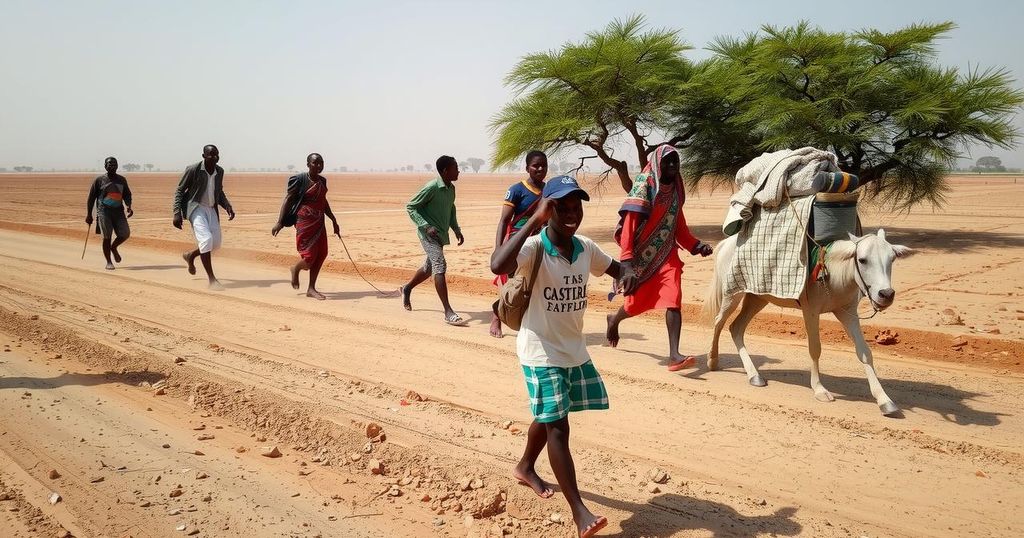Gendered Impacts of Climate Change on Pastoralist Migration in Northern Senegal
This case study analyzes the gendered impacts of climate change on pastoralist migration in Northern Senegal. It focuses on herders’ internal migration decisions from the Ferlo Reserve to the Kédougou region, exploring migration aspirations, climate risks, and adaptive strategies. By applying a gender lens, it investigates how male herders’ migration affects women who remain in their villages, aiming to inform gender-responsive adaptation strategies.
The impacts of climate change in Senegal manifest in multifaceted ways that significantly influence human activities. Within this context, this case study investigates the internal migration decisions of herders in northern Senegal, specifically those from the Ferlo Reserve. The mobility of these herders toward the Kédougou region is predominantly shaped by climate variability. This research delves into their migration aspirations, examines the climate risks encountered, and outlines the adaptive strategies employed both in their rural homelands and their semi-urban destinations.
The study adopts a gender-focused approach, centering on two pivotal themes: first, how male herders are utilizing internal migration as a means of adapting to climate-related challenges in their native environments, and second, the implications of this adaptive migration on the women herders who remain in their villages during the prolonged absences of their male counterparts. Through this lens, the research aims to enhance the understanding of climate-induced mobility and the resulting immobility within the Senegalese context, ultimately striving to inform gender-responsive, evidence-based adaptation strategies.
The methodology for this research encompassed the collection of primary data through semi-structured interviews and focus group discussions with 133 participants, mainly herders, from the regions of interest. Additionally, eight key informant interviews were conducted, supplemented by a comprehensive literature review to provide depth to the analysis.
Climate change presents significant challenges to pastoralist communities in Senegal, particularly as it alters traditional livelihoods and influences migration patterns. The Ferlo Reserve, home to many herders, experiences varying climatic conditions that necessitate mobility towards more hospitable environments, such as the Kédougou region. Understanding these dynamics is chiefly important, especially when considering the differentiated impacts across genders, as men often migrate in search of better conditions while women frequently manage domestic responsibilities in their home villages. This study seeks to shed light on these complexities and advocate for effective adaptive strategies.
In conclusion, this case study highlights the intricate relationship between climate change and pastoralist migration in Senegal, particularly emphasizing gender differences in migration strategies. Male herders exhibit adaptability through migration, whilst women face unique challenges during their absence. The findings support the need for gender-sensitive adaptation measures that acknowledge the distinct roles of men and women in managing climate-related challenges. Such strategies will be essential for fostering resilience in pastoralist communities amid ongoing environmental changes.
Original Source: reliefweb.int




Post Comment